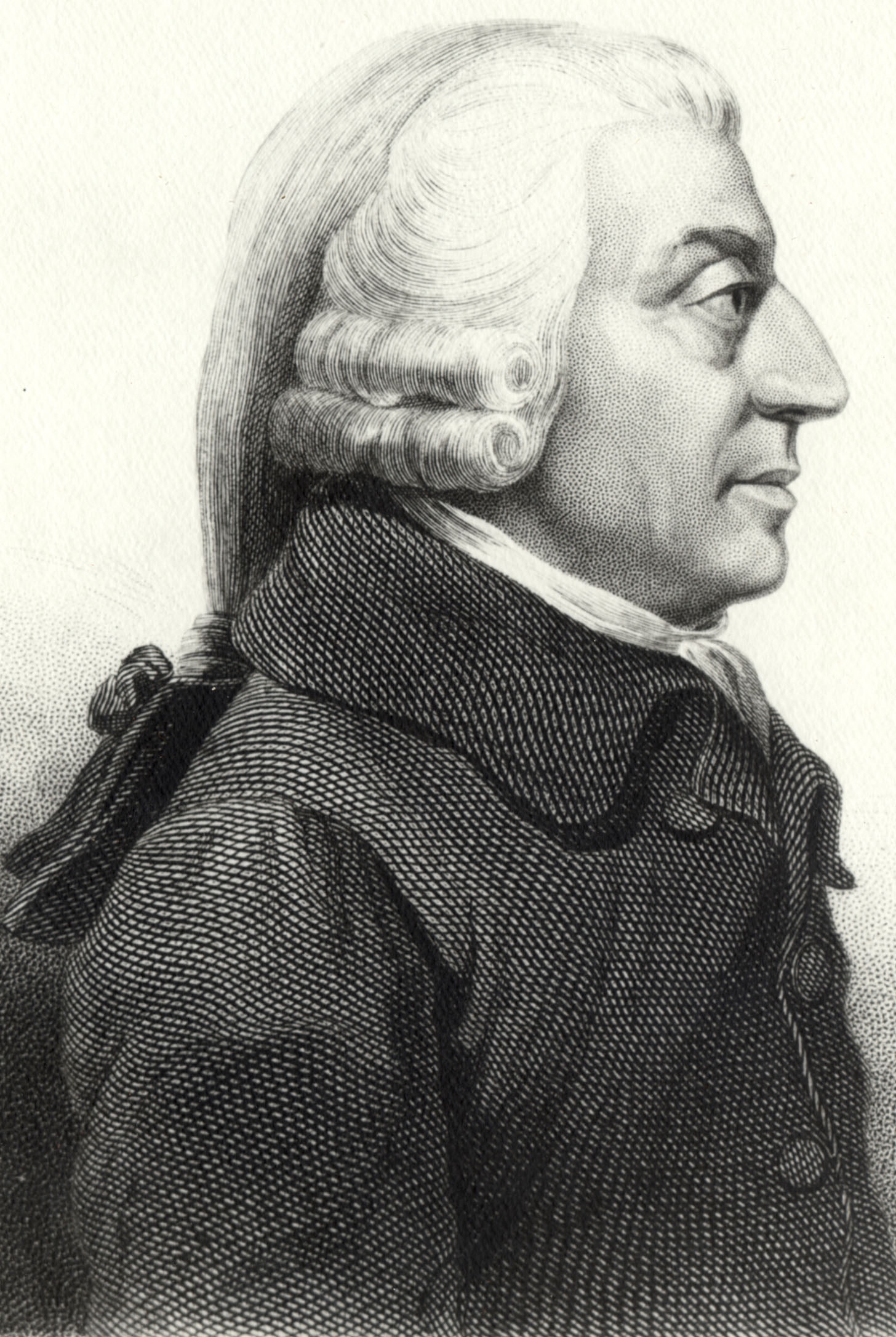Adam Smith słynne cytaty
Źródło: Witold Kwaśnicki, Zasady ekonomii rynkowej, Wydawn. Uniwersytetu Wrocławskiego, 2001, s. 48.
What is prudence in the conduct of every private family, can scarce be folly in that of a great kingdom. (ang.)
Badania nad naturą i przyczynami bogactwa narodów
Źródło: Księga IV, rozdz. II
Our merchants and master manufacturers complain much of the bad effects of high wages in raising the price, and thereby lessening the sale of their goods both at home and abroad. They say nothing concerning the bad effects of high profits. They are silent with regard to the pernicious effects of their own gains. They complain only of those of other people. (ang.)
Badania nad naturą i przyczynami bogactwa narodów
Źródło: Księga I, rozdz. IX
But man has almost constant occasion for the help of his brethren, and it is in vain for him to expect it from their benevolence only. He will be more likely to prevail if he can interest their self-love in his favour, and shew them that it is for their own advantage to do for him what he requires of them. (ang.)
Badania nad naturą i przyczynami bogactwa narodów
Źródło: Księga I, rozdz. II
Adam Smith cytaty
Badania nad naturą i przyczynami bogactwa narodów
Źródło: przeł.B. Jasińska, PWN, Warszawa 1954.
Badania nad naturą i przyczynami bogactwa narodów
Źródło: Jerzy Chodorowski, Adam Smith (1723–1790). Życie i dzieło autora „Badań nad naturą i przyczynami bogactwa narodów”, Wyd. Uniwersytetu Wrocławskiego, 2002, s. 253.
It is not very unreasonable that the rich should contribute to the public expence, not only in proportion to their revenue, but something more than in that proportion.
Badania nad naturą i przyczynami bogactwa narodów
Źródło: Księga V, rozdz. II. część II
Badania nad naturą i przyczynami bogactwa narodów
A man must always live by his work, and his wages must at least be sufficient to maintain him. They must even upon most occasions be somewhat more, otherwise it would be impossible for him to bring up a family, and the race of such workmen could not last beyond the first generation. (ang.)
Badania nad naturą i przyczynami bogactwa narodów
Źródło: rozdz. VIII http://books.google.pl/books?id=AXg4mctZEZ8C&pg=PA60&dq=inauthor:Adam+inauthor:Smith+%22man+must+always%22&hl=pl&ei=0igoTuaKCsaa-gbs5J3RCw&sa=X&oi=book_result&ct=result&resnum=3&ved=0CDQQ6AEwAg#v=onepage&q=inauthor%3AAdam%20inauthor%3ASmith%20%22man%20must%20always%22&f=false
A merchant, it has been said very properly, is not necessarily the citizen of any particular country. It is in a great measure indifferent to him from what place he carries on his trade; and a very trifling disgust will make him remove his capital; and, together with it, all the industry which it supports. (ang.)
Badania nad naturą i przyczynami bogactwa narodów
Źródło: Księga III, rozdz. IV.
Źródło: Witold Kwaśnicki, Zasady ekonomii rynkowej, op. cit., s. 42.
As every individual, therefore, endeavours as much as he can both to employ his capital in the support of domestic industry, and so to direct that industry that its produce may be of the greatest value; every individual necessarily labours to render the annual revenue of the society as great as he can. (…) and he is in this, as in many other cases, led by an invisible hand to promote an end which was no part of his intention. (ang.)
Badania nad naturą i przyczynami bogactwa narodów
Źródło: Księga IV, rozdz. II, przeł.B. Jasińska, PWN, Warszawa 1954.
Nobody ever saw a dog make a fair and deliberate exchange of one bone for another with another dog. (ang.)
Badania nad naturą i przyczynami bogactwa narodów
Źródło: Księga I, rozdz. II
Badania nad naturą i przyczynami bogactwa narodów
„Państwo jest bogate bogactwem swych obywateli.”
Źródło: Piotr Grabowiec, Model społeczeństwa obywatelskiego w historiozofii Feliksa Konecznego, wyd. Uniwersytet Wrocławski, 2000, s. 189.
Adam Smith: Cytaty po angielsku
Źródło: (1776), Book III, Chapter IV, p. 456.
Źródło: (1776), Book V, Chapter II, Part II, p. 894.
Źródło: (1776), Book IV, Chapter II
“II. The tax which each individual is bound to pay ought to be certain, and not arbitrary.”
Źródło: (1776), Book V, Chapter II, Part II, p. 892.
“All registers which, it is acknowledged, ought to be kept secret, ought certainly never to exist.”
Źródło: (1776), Book V, Chapter II, Part II, Appendix to Articles I and II, p. 935.
Section II, Chap. I.
The Theory of Moral Sentiments (1759), Part VII
Źródło: (1776), Book I, Chapter VIII, p. 87.
Section I, Chap. V.
The Theory of Moral Sentiments (1759), Part I
Section I, Chap. III.
The Theory of Moral Sentiments (1759), Part I
Źródło: The Wealth of Nations (1776), Book IV, Chapter II
Section II, Chap. I.
The Theory of Moral Sentiments (1759), Part VI
Źródło: (1776), Book I, Chapter I
“the competition of the poor takes away from the reward of the rich.”
Źródło: (1776), Book I, Chapter X, Part II, p. 154.
Źródło: (1776), Book II, Chapter III, p. 381.
“All money is a matter of belief.”
https://www.amazon.com/All-money-matter-belief-quotes/dp/B01M0HLG6B
Attributed
Section II, Chap. II.
The Theory of Moral Sentiments (1759), Part II
“Corn is a necessary, silver is only a superfluity.”
Źródło: (1776), Book I, Chapter XI, Part III, (First Period) p. 223.
Źródło: (1776), Book V, Chapter III, Part V, p. 1032 (Last Page).
Źródło: (1776), Book I, Chapter V, p. 50.
Źródło: (1776), Book I, Chapter XI, Part III, (Conclusion..) p. 282.
Chap. III.
The Theory of Moral Sentiments (1759), Part III
Źródło: (1776), Book IV, Chapter III, Part II, p. 530.
Section II, Chap. I.
The Theory of Moral Sentiments (1759), Part II
Źródło: (1776), Book IV, Chapter V, p. 563.
